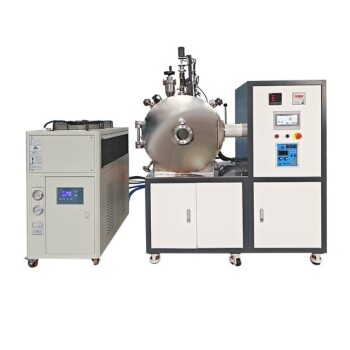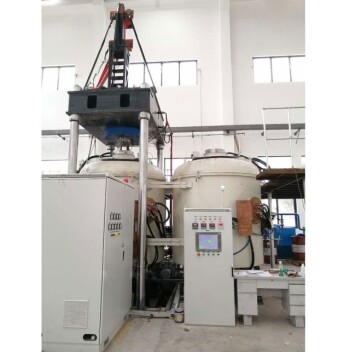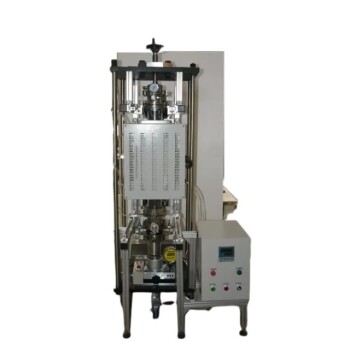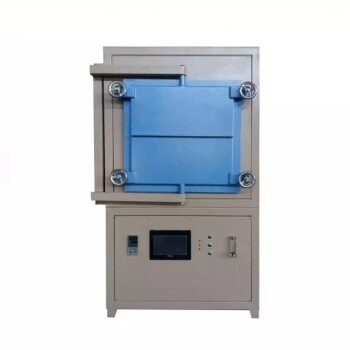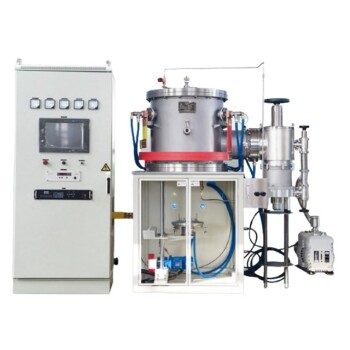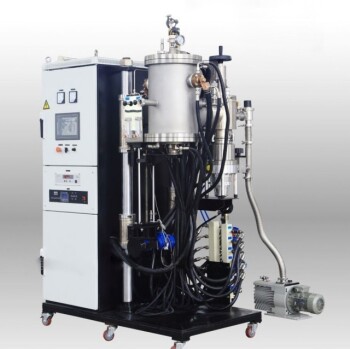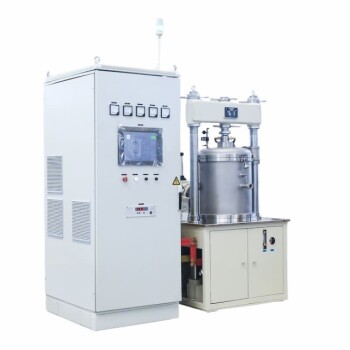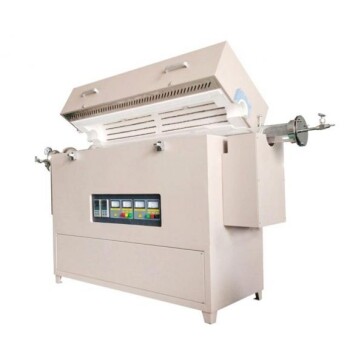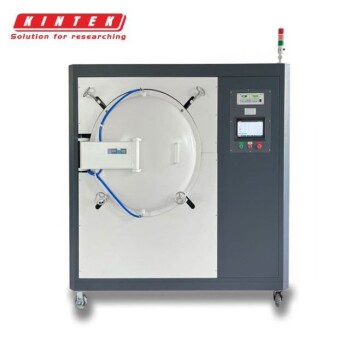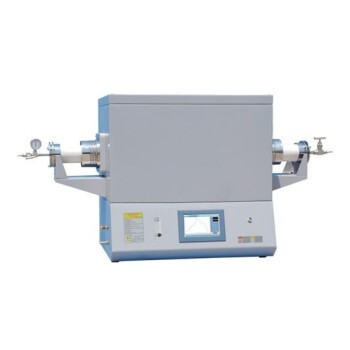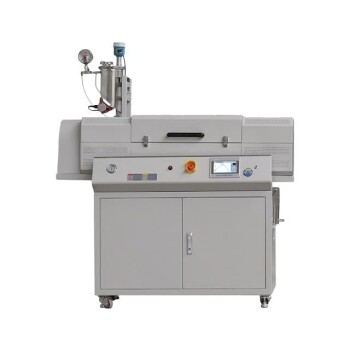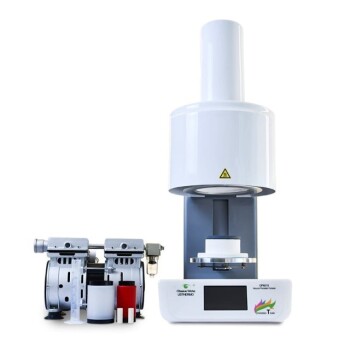In the modern foundry and metal processing industry, sustainability is no longer an afterthought but a primary market driver. The demand for IGBT (Insulated Gate Bipolar Transistor) induction melting furnaces is directly tied to their ability to deliver significant energy efficiencies, reduce environmental impact, and comply with increasingly strict regulations, making them a strategic investment rather than just an equipment upgrade.
The core reason for the market's shift is that IGBT technology resolves the conflict between operational performance and environmental responsibility. These furnaces achieve faster, more consistent melting while simultaneously minimizing energy consumption and electrical pollution.
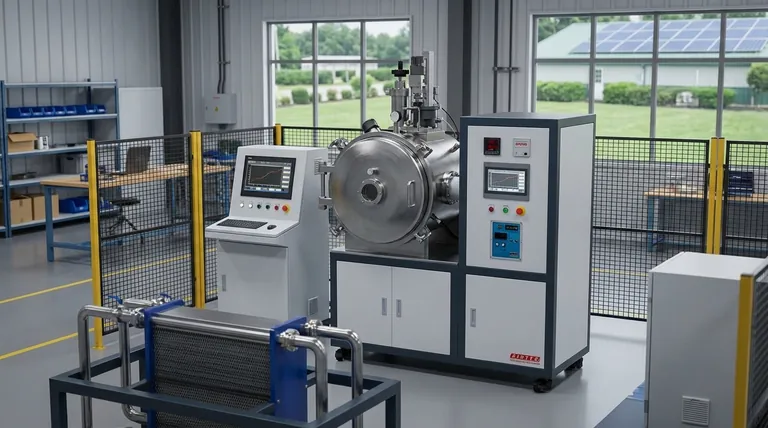
Why IGBT Furnaces Are Fundamentally More Sustainable
The sustainability benefits of IGBT furnaces are not incidental; they are built into the core technology. This is a stark contrast to older systems that require significant modifications to meet modern environmental standards.
Unmatched Energy Efficiency
An IGBT furnace's series resonant circuit allows for constant power output throughout the entire melting cycle. Unlike older technologies, its performance isn't degraded by the thickness of the furnace lining or the state of the load.
This consistency means a faster, more predictable melting process, which directly translates to lower overall kilowatt-hour consumption per ton of metal produced. This high efficiency and low power dissipation significantly reduce both energy costs and the associated carbon footprint.
Minimal Environmental Contamination
Traditional SCR (Silicon Controlled Rectifier) power supplies are notorious for creating harmonic pollution. This "electrical noise" contaminates the power grid, can interfere with other sensitive electronic equipment in the factory, and often requires expensive filtering hardware to mitigate.
IGBT systems, by their design, produce extremely low harmonic distortion. This eliminates grid pollution, protects other factory equipment, and avoids the need for costly ancillary filtering components, simplifying the entire electrical infrastructure.
Optimized Resource Management
Modern IGBT furnaces often incorporate a closed-loop water circulation system with heat exchangers. Instead of a wasteful single-pass cooling method, this system reuses distilled water.
Using distilled water prevents the buildup of scale and impurities within the cooling channels, ensuring the system runs at peak efficiency for longer. This design choice reduces water consumption and minimizes maintenance downtime associated with cleaning scaled pipes.
Understanding the Trade-offs and Challenges
While IGBT technology offers clear advantages, adopting it requires a clear understanding of the associated challenges. Acknowledging these factors is key to making a well-informed investment decision.
High Initial Investment
The most significant hurdle is the higher upfront capital cost compared to traditional SCR-based systems. These advanced furnaces represent a substantial investment.
However, this cost must be weighed against the long-term return on investment (ROI). The significant savings from lower energy consumption, reduced maintenance, and improved productivity often provide a compelling financial case over the equipment's lifespan.
Technological Complexity and Skill Requirements
The integration of smart controllers, AI, and advanced diagnostics makes these systems more complex than their predecessors. Effective operation and maintenance are not trivial.
This necessitates having skilled technicians who are trained to manage, diagnose, and maintain these sophisticated systems. Factories must invest in training or hire specialized personnel to fully leverage the furnace's capabilities and ensure its reliability.
Making the Right Choice for Your Operation
Choosing an IGBT induction furnace is a strategic decision that should align with your primary operational goals.
- If your primary focus is environmental compliance and corporate responsibility: The ultra-low harmonic distortion and reduced carbon footprint make IGBT the definitive choice for meeting and exceeding regulations.
- If your primary focus is reducing operational costs: The superior energy efficiency and constant power output will deliver measurable reductions in your electricity bills and increase throughput per shift.
- If your primary focus is future-proofing your facility: The integration of smart controls, real-time monitoring, and AI for predictive maintenance positions your operation for the next generation of industrial efficiency.
Ultimately, adopting IGBT induction melting technology empowers you to achieve superior metallurgical results while building a more efficient, cost-effective, and environmentally responsible operation.
Summary Table:
| Sustainability Factor | IGBT Furnace Advantage | Impact on Operation |
|---|---|---|
| Energy Efficiency | Constant power output, faster melting cycles | Lower kWh per ton, reduced electricity costs |
| Environmental Impact | Ultra-low harmonic distortion, no grid pollution | Easier compliance, no need for expensive filters |
| Resource Management | Closed-loop water cooling with distilled water | Reduced water usage, minimal scaling and maintenance |
| Operational Costs | High efficiency leads to long-term savings | Improved ROI despite higher initial investment |
Ready to build a more sustainable and efficient foundry? At KINTEK, we leverage our advanced R&D and in-house manufacturing to provide high-temperature furnace solutions tailored to your needs. Whether you require a standard IGBT induction furnace or a fully customized system, our expertise in Muffle, Tube, Rotary, Vacuum & Atmosphere Furnaces, and CVD/PECVD Systems ensures you get a solution that maximizes both performance and environmental responsibility.
Contact us today to discuss how we can help you meet your sustainability goals and enhance your operational efficiency.
Visual Guide
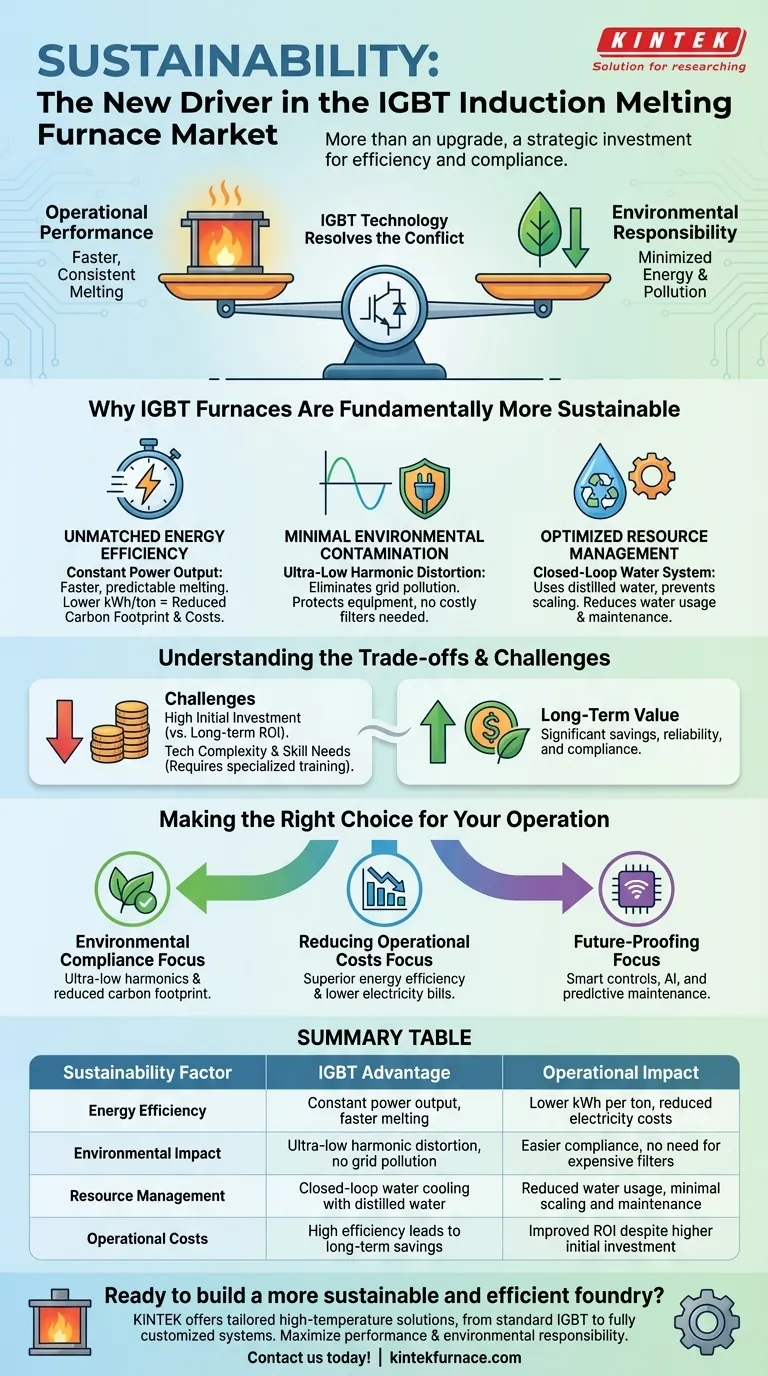
Related Products
- Vacuum Induction Melting Furnace
- High Pressure Laboratory Vacuum Tube Furnace Quartz Tubular Furnace
- 600T Vacuum Induction Hot Press Vacuum Heat Treat and Sintering Furnace
- 1700℃ Controlled Inert Nitrogen Atmosphere Furnace
- Vacuum Hot Press Furnace Machine Heated Vacuum Press Tube Furnace
People Also Ask
- What are the key features and benefits of a Vacuum Induction Melting Furnace? Achieve High-Purity Metal Production
- What are the key components of a Vacuum Induction Melting (VIM) furnace? Master High-Purity Metal Processing
- How is operator safety ensured during the vacuum induction melting process? Discover Multi-Layered Protection for Your Lab
- How does vacuum induction melting work? Achieve Ultra-Pure, High-Performance Alloys
- What industries benefit from Vacuum Induction Melting Furnaces? Unlock High-Purity Metals for Aerospace, Medical, and More
